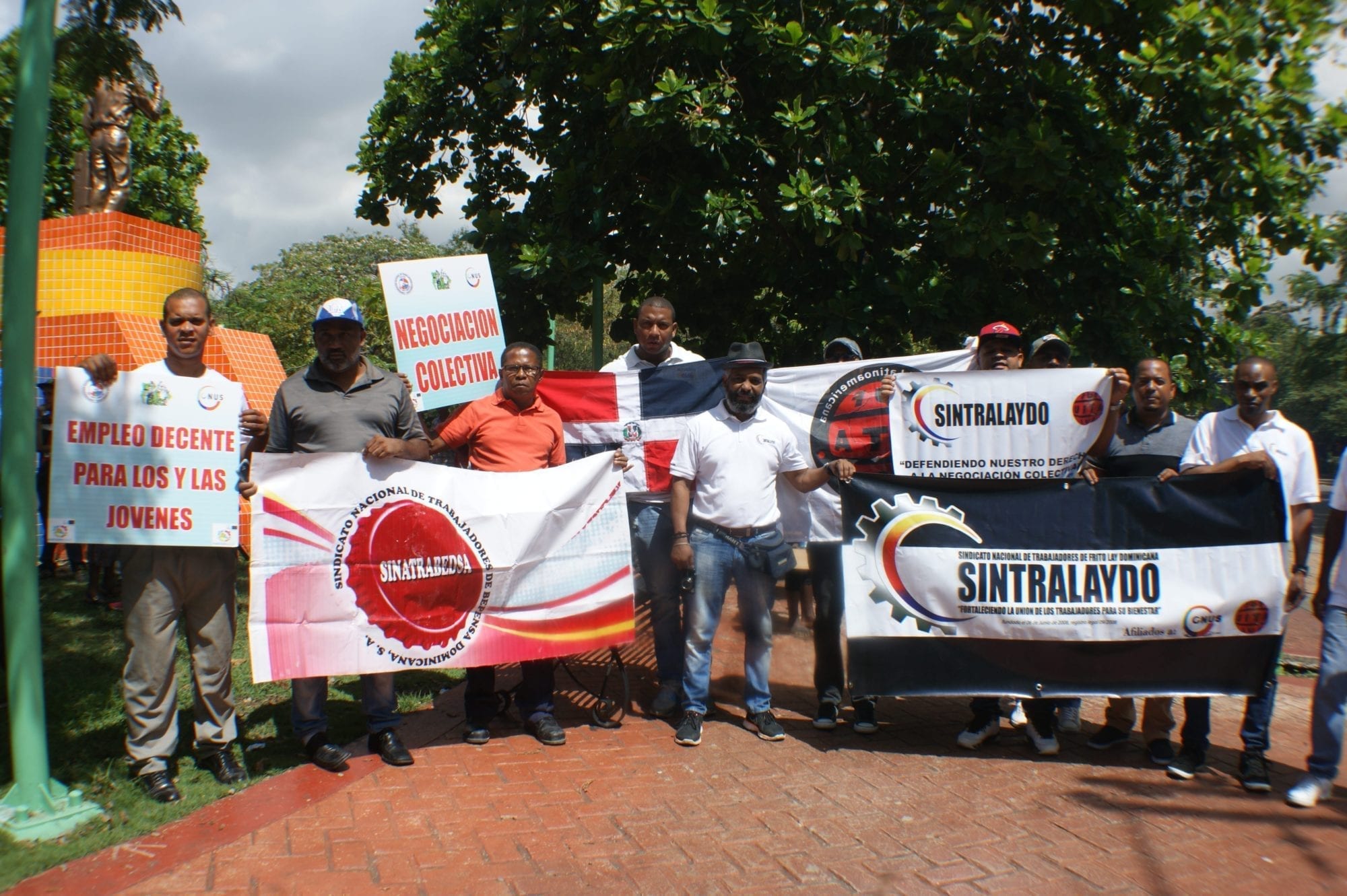After a nine-year struggle to achieve union recognition and their first contract in the Dominican Republic, “it is undeniable that today we are stronger,” says Ramón Mosquea, secretary general of the union, SINTRALAYDO.
“I have worked 12 years for this company [Frito Lay/PepsiCo], and I want to tell you how important it was for us to have become organized in our trade union,” says Mosquea.
Mosquea and Jésus Lora, SINTRALAYDO national secretary for education, spoke at the Solidarity Center in Washington, D.C., last week, where they shared their experiences in the long struggle for workplace justice. (Jésus Lora tells his story at the Solidarity Center Workers Equality Forum).
Thirty-one workers first formed the union in June 2008, registering it with the Ministry of Labor, but struggled for years to maintain membership in the face of harassment and intimidation. After they sought to achieve majority recognition for a union at the company in 2012, management derailed the process by challenging the eligibility status of dozens of workers, which reduced support for the union to less than 50 percent, according to SINTRALAYDO leaders. Dominican law requires that more than 50 percent of eligible workers support a union at a worksite before it can be officially recognized.
The company subsequently fired more than 500 SINTRALAYDO members, and union leaders like Mosquea were harassed and threatened.
‘Don’t Give Up’
Yet the workers persisted, joining with the union to recruit supporters, develop greater leadership among its executive committee and engage management in ongoing dialogue to resolve worksite problems, says Mosquea.
Lora urges workers in countries around the world to not lose hope in the face of difficult struggles.
“Don’t give up, keep your heads high and always fight for what you want, because if you do that, you will always achieve what you want as we did in the Dominican Republic,” he says.
“It’s been a success, a great achievement, this collective agreement. We have gained the confidence of the workers, women and men, through social media and the community. This has allowed us to be accepted, trusted by the workers and their families as well.”

